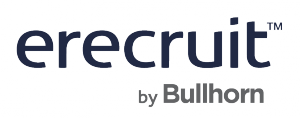Help Your Clients Avoid Employee Misclassification Risk
 Misclassifying employees as independent contractors is a very tempting proposition during difficult economic times.
Misclassifying employees as independent contractors is a very tempting proposition during difficult economic times.
After all, companies can get out of payroll taxes, unemployment, workers’ compensation, paid sick time, vacation and health insurance. Companies can save substantial amounts of money that can instead be allocated towards other important business needs.
This is probably why the IRS is cracking down on this practice.
Misclassification is not a good idea at all, as it can land companies in a world of trouble with the IRS. And this is true whether the misclassification was intentional or unintentional.
Recruiting or staffing agencies can ensure their clients stay on the right side of the law in this matter by employing some of the tests the IRS uses to evaluate if workers are functioning as employees. These tests are designed in part to examine behavioral and functional control, which means they assess whether a company has the right to direct and control an employee’s work and the financial and business aspects of his or her job. In addition, they will also take a look at the type of relationship a company has with workers, and whether that tends to describe an employee/employer relationship.
Some examples of what is evaluated include:
· How the business pays the worker
· The extent to which the worker can realize a profit or incur a loss
· Whether the business provides the worker with employee-type benefits
Dependent on the outcome of these tests, one option companies can employ to avoid misclassification risk is the development of a contract for temporary employees. In a general sense, this contract would be designed to limit the control a company has over the worker, while also spelling out the agreed-upon responsibilities of each party.
Other strategies that can help avoid misclassification include labeling any work as a project that can be completed at any time by the contractor, requiring invoices from the contractor for all services, and structuring the contract between the contractor’s business entity (if applicable) and companies. But again – this is all dependent on the outcomes of tests offered by the IRS.
What will always ring true is that each employment situation is unique with its own challenges and complexities. And your clients will always look to you as an expert in all employment matters. This means there will be a certain expectation with your clients that you will be the one that helps to prevent them from any trouble with the IRS.
While some of the options I offer above can be taken into account when consulting your clients, note that employment guidelines can change rapidly. In other words, the advice you can take from a static post in a dynamic world is this – always stay up to date on the changes – and when the IRS is involved never offer advice today based on what you knew to be right yesterday.
To learn more about how staffing software by Bond US can help ensure your staffing agencies processes remain efficient, in the face of ever-changing employment guidelines, request a free demo.

 Sometimes, the best lessons in life are learned by viewing the example of others. And sometimes, the example provided by others – from a refusal to admit your mistakes to focusing too heavily on office politics to is a great example of what not to do. Unfortunately, a staffing agency in Stockholm, Sweden has provided an atrocious example of how not to manage relationships internal or external to your company.
Sometimes, the best lessons in life are learned by viewing the example of others. And sometimes, the example provided by others – from a refusal to admit your mistakes to focusing too heavily on office politics to is a great example of what not to do. Unfortunately, a staffing agency in Stockholm, Sweden has provided an atrocious example of how not to manage relationships internal or external to your company. You may be one of those staffing firms that specializes its recruiting efforts exclusively in one industry, such as healthcare, accounting, or manufacturing. While
You may be one of those staffing firms that specializes its recruiting efforts exclusively in one industry, such as healthcare, accounting, or manufacturing. While  Finding the right metrics to focus on in your staffing agency can be quite challenging. Which metrics are the most important and why could be a subject of debate for hours without end. To complicate the situation, if you adjust your processes or goals based off tracking the wrong staffing metrics, you could end up driving your agency into unfamiliar, alarming and/or potentially hazardous territory.
Finding the right metrics to focus on in your staffing agency can be quite challenging. Which metrics are the most important and why could be a subject of debate for hours without end. To complicate the situation, if you adjust your processes or goals based off tracking the wrong staffing metrics, you could end up driving your agency into unfamiliar, alarming and/or potentially hazardous territory.
 Just when you thought you had your staffing agency’s Facebook page in perfect order, they went and made you change it.
Just when you thought you had your staffing agency’s Facebook page in perfect order, they went and made you change it.


 As CMO for a large
As CMO for a large